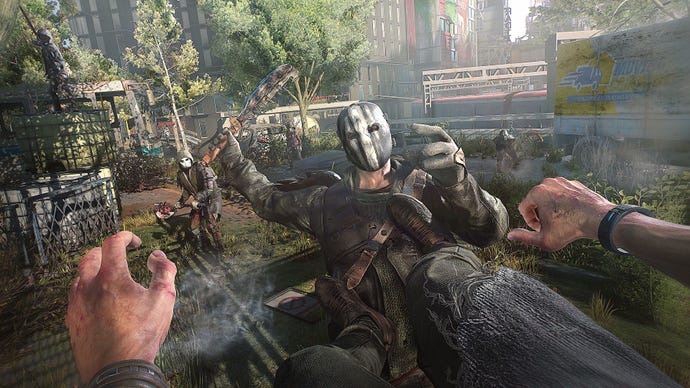Game length does matter, but it’s right to be skeptical about grand boasts
Dying Light 2 has received some flack over its 500 hours to complete claim, but that’s because we’ve become weary of bloat.
Over the weekend, the internet was once again up in arms over something video game related. Taking a break from rightfully dunking on (but perhaps inadvertently promoting) NFT nonsense, it was the turn of Dying Light 2 to feel the flames of outrage. The game’s social account put out a statement that the zombie survival parkour open-world sequel would take 500 hours (about 3 weeks) to complete. Boom. That is an outrage.
There has now long been a kind-of disconnect between games media types (that’s me) and consumers (you, unless you are a games media type drawn to this via my baity tweets) over how long video games should be. As someone who plays them for a living, a game being – quite honestly – more than five hours long can be a source of stress. Most games media types who need to play games before writing about them will need to find these hours, somewhere. Where? Most likely in the evenings, when the family is asleep, when you should be asleep, and when you aren’t being paid.
It’s video games, though, right? Fun. Not work. Everyone wants to have this kind of job. I’m being deliberately confrontational to emphasize the point, but even hobbies and fun activities can start to grate when you are on deadline and need to batter enemies for another 15 hours, knowing full-well that only 12 hours of possible “work” time remain.
Yet, I am pro large, sprawling games as they are often some of my favorites. And to be blunt, they often translate to player interest and therefore site traffic, and my own personal success in my job. I played through The Witcher 3 and God of War in recent years as a fan, not a games media type. I can understand why consumers care about game length: when you buy something, you want to get your money’s worth. I just think Dying Light 2 is trying to associate game length with quality, and that can’t be the case.
The Witcher 3 is the perfect example of a game that can take an exceptionally long time to fully complete, yet isn’t rated highly down to this attribute in isolation. It’s loved by many because the side quests and optional content are so brilliant – in fact, some of the game’s best moments come away from the main story. Going back to my childhood, GoldenEye on the N64 is known for its incredible multiplayer, but its superbly layered difficulty modes let players invest countless more hours into the campaign if desired. It wasn’t filler. Completing every level on 00 Agent was a rite of passage into a cool (read: not cool) club.
.jpg?width=690&quality=70&format=jpg&auto=webp)
Dying Light 2’s problem is that currently 500 hours is just a number. It’s meaningless. Do I want to spend 500 hours fully completing it? It’s impossible to say at this point. If the game is wonderful and the side-objectives are diverse and fun, then sure, maybe I will. But to sell a game on a number makes no sense to me and shouldn’t make sense to you. Quality comes first.
As a kid I spent what I would now consider to be a luxurious amount of time playing Resident Evil games on the PS1. These aren’t long games, at least not by modern standards, but I must have replayed them five to 10 times each. As a number on a tweet, no Resident Evil game is going to impress, but I got value from my scrimped and saved purchases, that’s for sure. More importantly, I had a brilliant time with some landmark games.
I joined in the online pitchfork waggling with my own pithy tweet, but I’m really not against games being long or people wanting games to offer days worth of content. But let’s not judge a game’s value on an arbitrary number that might as well have been plucked from the ether.


